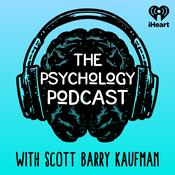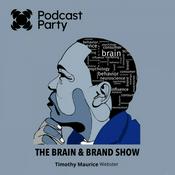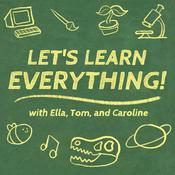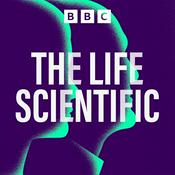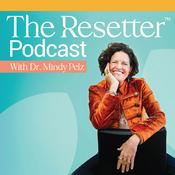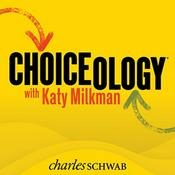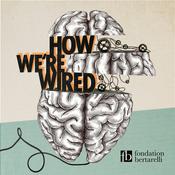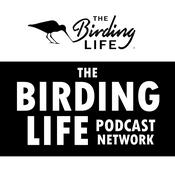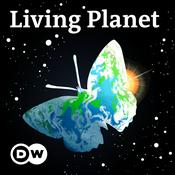15 episodes

SBC in Faith Engagement to End Harmful Practices
2025/10/09 | 25 mins.
For generations, harmful practices such as female genital mutilation and child marriage have been justified as traditions of identity and belonging, and have, at times, been linked to misinterpretations of religious text – even as they cause life long harm. Today, faith leaders across Africa and the Middle East are reshaping these beliefs from within their own communities, using their moral authority and influence to redefine these traditions and protect the next generation.In this episode, Qali Id speaks with faith leaders and UNICEF specialists from Uganda, The Gambia, and Iraq to explore how faith engagement is helping end harmful practices, in particular FGM. From sermons that reinterpret religious teachings, to interfaith alliances confronting resistance, to tea-circle conversations that replace top-down campaigns, this discussion reveals how transformation takes root when it begins within communities themselves.You’ll hear from:Sheikh Abdallah Sabila, Imam and advocate from UgandaDr. Nassim Majidi, Director and Co-founder of Samuel Hall, KenyaMomat Jallow, SBC Specialist at UNICEF The GambiaHadeer Albo Heae, SBC Manager at UNICEF IraqResources:UNICEF Faith Engagement guide on Harmful Practices, developed in collaboration with Religious for Peace and Samuel HallDo you want to learn more on how does Social and Behaviour Change supports interventions in Child Protection? Tune in to our ABCs of SBC podcast’s episode on SBC in Social Norms and Harmful Practices, SBC in Preventing Violence Against Girls, Boys and Women, and SBC in Online Child Protection.The views and opinions expressed by the contributors are their own and do not necessarily reflect the views or positions of UNICEF or any entities they represent. The content here is for information purposes only.The ABCs of SBC is hosted by Qali Id and produced and developed by Helena Ballester Bon in partnership with Common Thread. Check out UNICEF’s latest publication on Social and Behaviour Change, Why don’t you just behave! For more information about UNICEF SBC, check out the programme guidance.We care about what you think — you can share your thoughts on the podcast using this feedback form. For all other inquiries, please contact [email protected].

SBC in Community System Strengthening
2025/9/29 | 21 mins.
Sudan is living through war and mass displacement. Yemen faces one of the world’s longest-running humanitarian crises. And in Moldova, far from active conflict but still grappling with inequality, Roma communities remain excluded from the very systems meant to serve them. Across these vastly different contexts, one question emerges: how do communities themselves step in to sustain and shape the systems around them?In this episode, host Qali Id speaks with UNICEF SBC specialists from Sudan, Yemen, and Moldova to explore the unexpected power of trust, local leadership, and cultural respect in strengthening systems. From youth-run resistance committees, to volunteer health networks, to trusted Roma leaders bridging gaps in access, this conversation highlights how Social and Behaviour Change (SBC) enables communities not just to survive—but to lead the way toward more inclusive and resilient futures.You'll hear from:Maha Abasher Khalid Osman, SBC Specialist at UNICEF SudanCristina Stratulat, SBC Officer at UNICEF Moldova Abdullah Alshehari, SBC Specialist at UNICEF YemenResources:Harnessing community engagement and multisectoral SBC approaches to address vaccine hesitancy in Moldova | UNICEF MoldovaHome | UNICEF SBC GUIDANCE Related episodes:Episode 5 - SBC in Support of System Strengthening (Apple) (Spotify) Episode 11 - Community Delivery Platforms (Apple) (Spotify)The views and opinions expressed by the contributors are their own and do not necessarily reflect the views or positions of UNICEF or any entities they represent. The content here is for information purposes only.The ABCs of SBC is hosted by Qali Id and produced and developed by Helena Ballester Bon in partnership with Common Thread. Check out UNICEF’s latest publication on Social and Behaviour Change, Why don’t you just behave! For more information about UNICEF SBC, check out the programme guidance.We care about what you think — you can share your thoughts on the podcast using this feedback form. For all other inquiries, please contact [email protected].

SBC in Online Child Protection
2025/8/06 | 23 mins.
The internet is where kids learn, play, and connect, but it’s also where they can be bullied, exploited, surveilled, and manipulated. As digital threats evolve faster than the systems designed to protect children, how do we keep them safe in a world that’s always online?From outdated legal frameworks to overwhelmed parents and disconnected protection services, this episode highlights not just the risks children face online, but the opportunities to involve them and their caregivers as co-designers of safer digital spaces, and how SBC offers a way forward.You'll hear from:Afrooz Kaviani Johnson, Child Protection Specialist at UNICEF HeadquartersMahwish Saeed Syed, SBC Officer at UNICEF PakistanSaji Thomas, Chief of Child Protection at UNICEF Gulf Area OfficeResources:“Digitial Parenting” on the Parent HubExplore how UNICEF is tackling violence and exploitation in the digital environment, including a range of actions for parents, governments and companies to keep children safe online.The views and opinions expressed by the contributors are their own and do not necessarily reflect the views or positions of UNICEF or any entities they represent. The content here is for information purposes only.The ABCs of SBC is hosted by Qali Id and produced and developed by Helena Ballester Bon in partnership with Common Thread. Check out UNICEF’s latest publication on Social and Behaviour Change, Why don’t you just behave! For more information about UNICEF SBC, check out the programme guidance.We care about what you think — you can share your thoughts on the podcast using this feedback form. For all other inquiries, please contact [email protected].

SBC in Community Delivery Platforms
2025/6/16 | 23 mins.
What if healthcare systems weren't just centralized services but dynamic partnerships rooted in trust, relevance, and equity? That’s the driving vision behind Community Delivery Platforms. In this episode we talk about collaborations among governments, local communities, UNICEF, and partner organizations to make essential health and nutrition services accessible to every mother, child, and household, no matter where they live. Join host Qali Id as we unpack the strategies, struggles, and successes of community delivery platforms, with insights from:Afrika Mukaneto, SBC Specialist, UNICEF Regional Office for South AsiaWaqas Shafi, SBC Specialist, UNICEF PakistanBridget Job Johnson, Chief of SBC, UNICEF BangladeshWant to learn more about how SBC can be used to strengthen systems? Check out episode 5, on SBC in Support of Systems Strengthening. We’ll also have another episode coming out soon on Community System Strengthening - stay tuned. Resources:Community Health and Delivery Partnership websiteAalo Clinic offsetting the burden of health care costs in the slums of Bangladesh | UNICEF BangladeshCommunity leaders come forward to protect at-risk families against dengue | UNICEF BangladeshThe views and opinions expressed by the contributors are their own and do not necessarily reflect the views or positions of UNICEF or any entities they represent. The content here is for information purposes only.The ABCs of SBC is hosted by Qali Id and produced and developed by Helena Ballester Bon in partnership with Common Thread. Check out UNICEF’s latest publication on Social and Behaviour Change, Why don’t you just behave! For more information about UNICEF SBC, check out the programme guidance.We care about what you think — you can share your thoughts on the podcast using this feedback form. For all other inquiries, please contact [email protected].

SBC in the Mpox Response
2025/5/13 | 23 mins.
In this episode, Qali dives into the unfolding mpox outbreaks in Central and West Africa. With new patterns of transmission, rising child mortality, and deep-rooted stigma, frontline responders in DRC and Burundi are rewriting the old playbooks in real time. Join UNICEF SBC experts as they unpack what worked, what fell short, and how communities, digital tools, and gender-aware strategies are shaping the response. This episode unpacks the opportunities taken, missed, and what must be done to prepare better for the next outbreak.Guests (in order of appearance)Vincent Petit, UNICEF SBC Global LeadGaoussou Nabalom, SBC and Risk Communication and Community Engagement Coordinator, UNICEF BurundiNorman Muhwezi, former UNICEF OIC Chief of SBC in Democratic Republic of Congo (DRC) Innovation SpecialistResourcesRisk communication and community engagement for mpox vaccination in eastern DRCMpox, mining, and vulnerabilities of women and children in eastern DRCMeeting report: Mpox and discrimination in African settingsHow to achieve and sustain high uptake of mpox vaccination in outbreak settingsHow to Address stigma during mpox responseGuidance for RCCE practitioners on mpox (ENG and FRA) 5 Tips for CHW and Vaccinators (ENG and FRA)The views and opinions expressed by the contributors are their own and do not necessarily reflect the views or positions of UNICEF or any entities they represent. The content here is for information purposes only.The ABCs of SBC is hosted by Qali Id and produced and developed by Helena Ballester Bon in partnership with Common Thread. Check out UNICEF’s latest publication on Social and Behaviour Change, Why don’t you just behave! For more information about UNICEF SBC, check out the programme guidance.We care about what you think — you can share your thoughts on the podcast using this feedback form. For all other inquiries, please contact [email protected].
More Science podcasts
Trending Science podcasts
About The ABCs of SBC
Listen to The ABCs of SBC, Hidden Brain and many other podcasts from around the world with the radio.net app
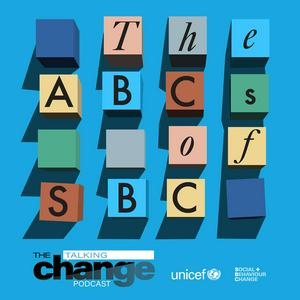
Get the free radio.net app
- Stations and podcasts to bookmark
- Stream via Wi-Fi or Bluetooth
- Supports Carplay & Android Auto
- Many other app features
Get the free radio.net app
- Stations and podcasts to bookmark
- Stream via Wi-Fi or Bluetooth
- Supports Carplay & Android Auto
- Many other app features


The ABCs of SBC
download the app,
start listening.




